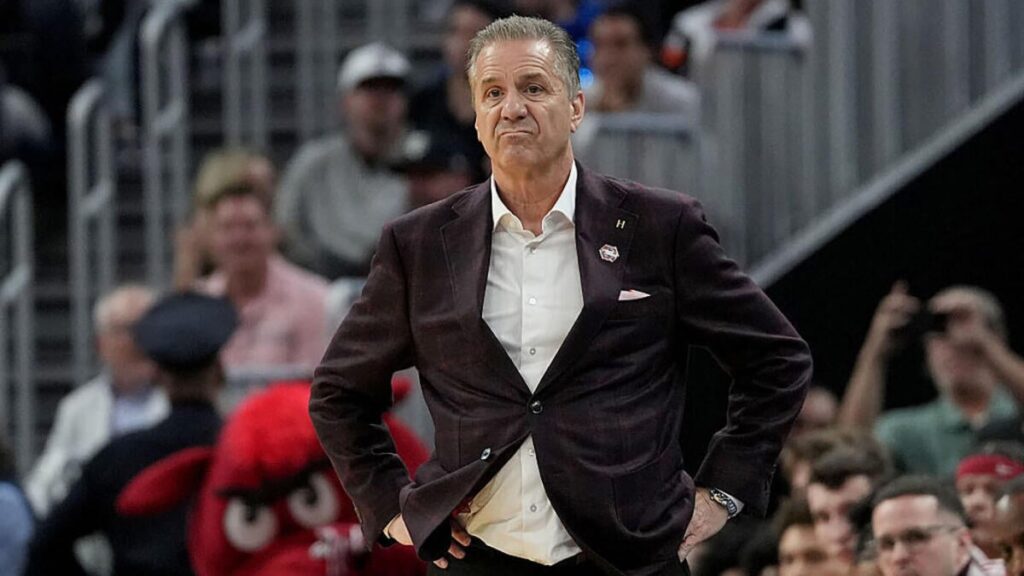Arkansas coach John Calipari spoke with CBS Sports analyst Jon Rothstein to discuss everything from when he may leave coaching to his thoughts about the transfer portal.
Calipari began his coaching career in 1982 as an associate assistant at Kansas and he’s also coached in some capacity for Pittsburgh, UMass, the Nets (who were in New Jersey at the time), the Philadelphia 76ers, Memphis, Kentucky and currently Arkansas, a job he took in 2024.
It’s important for Calipari to help his players not only in their basketball careers, but in their personal lives, emphasizing how difficult how the current world of social media can impact student’s mental health.
Calipari said he wants to help 20-30 more families, and once he does that, he can say, “Alright, had a good run.”
Explaining why he thought he’d retire earlier, the 66-year-old said, “I never thought I’d coach this long. And mainly because I’ve been under the gun for how long? I mean, every arena sold out, had No. 1 teams, which means you’re chased … And I said, ‘If I get to 60, that’ll be it.'”
He said his biological age is 58, adding, “So maybe I’m young enough to keep going.”
Calipari wouldn’t say anything definite in terms of a retirement, but did give insight on when he will know when it’s time to be done.
“If I can’t impact kids, this will be my last year,” he said.
Dribble Handoff: USC, Virginia expected to be among college basketball’s most-improved teams for 2025-26
David Cobb
Calipari is critical of the transfer portal and wants to get the rules “in check” so that coaches can still coach and impact young people. He said if NIL deals and the transfer portal start to make it so he doesn’t have that connection with the players, then he has no desire to keep going.
Calipari says the biggest issue in the sport is the transfer portal, and while he believes players should be able to transfer, Calipari finds issue when someone transfers every year. He says players should have to stay in a school for a year, actually play, and if they choose to transfer, they can do it one time.
“We can’t be coaching against 28-year-olds. Are we nuts? … We’re getting away from freshman recruiting,” Calipari said.
If there is a handle over how many times a player can transfer, Calipari says it will help students graduate on time and get back to the times of finding young players and developing them. He said 70 percent of the issues have to do with what he feels is an issue with the transfer portal.
“I always said kids deserve the money, but the way we’re doing this, we’re hurting kids, not helping kids,” Calipari says.
Read the full article here



